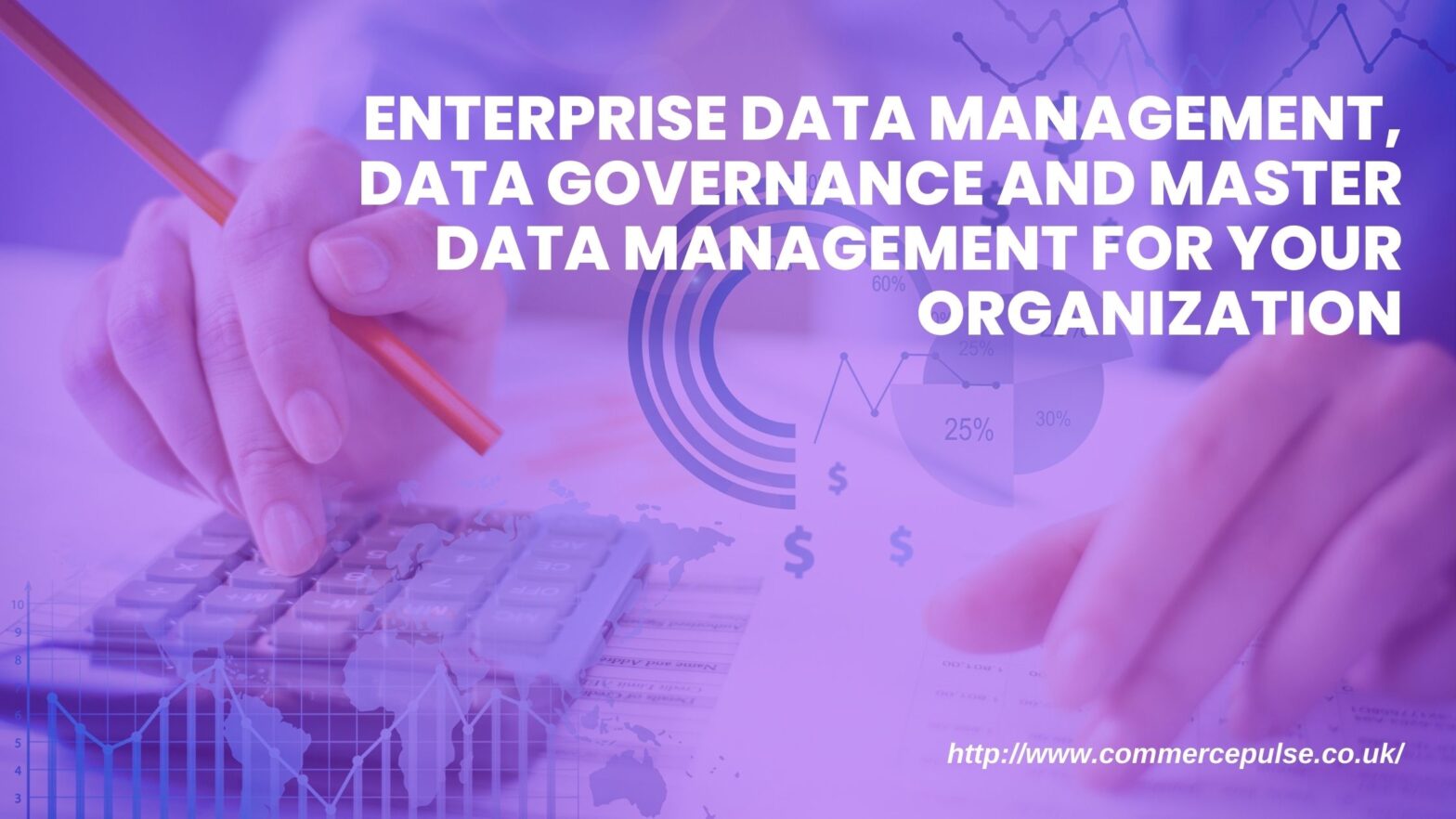In the age of digital transformation, businesses are increasingly recognizing the value of their data as a strategic asset. Effective management and governance of data have become critical components of organizational success. At Commerce Pulse, we understand the importance of harnessing the power of data to drive growth and competitiveness. In this blog post, we will explore the concepts of Enterprise Data Management (EDM), Data Governance, and Master Data Management (MDM), and how they can empower your organization to maximize the value of its data.
Enterprise Data Management (EDM):
Enterprise Data Management encompasses the strategies, processes, and technologies used to manage and leverage an organization’s data assets across the enterprise. It involves the integration, storage, and retrieval of data to ensure consistency, accuracy, and accessibility. With EDM, businesses can break down data silos, facilitate data sharing and collaboration, and enable data-driven decision-making at all levels.
Data Governance:
Data Governance is the framework that defines the policies, procedures, and responsibilities for managing and protecting data assets. It establishes guidelines for data quality, privacy, security, and compliance. A robust data governance program ensures that data is accurate, consistent, and reliable, enabling organizations to make informed decisions, mitigate risks, and maintain regulatory compliance. It also provides a mechanism for resolving data-related issues and conflicts.
Master Data Management (MDM):
Master Data Management involves the consolidation, management, and synchronization of master data across an organization. Master data refers to the critical data entities that are shared and used across multiple systems and processes, such as customer data, product data, and supplier data. MDM ensures that the master data is consistent, accurate, and up-to-date across the enterprise. By having a single, reliable source of master data, businesses can eliminate data redundancy, improve data quality, and enhance operational efficiency.
Benefits of Enterprise Data Management, Data Governance, and MDM:
Improved Data Quality: By implementing robust data management practices, organizations can ensure the integrity and accuracy of their data. This leads to better decision-making, improved operational efficiency, and enhanced customer experiences.
- Enhanced Data Accessibility: With EDM and MDM, businesses can provide easy and secure access to relevant data for authorized users. This empowers employees with the information they need to perform their roles effectively, fostering collaboration and driving innovation.
- Regulatory Compliance: Data governance ensures that organizations adhere to data privacy regulations, industry standards, and internal policies. This mitigates the risk of data breaches, penalties, and reputational damage, while instilling trust and confidence among customers and stakeholders.
- Streamlined Business Processes: Implementing EDM and MDM allows businesses to streamline their operations by eliminating data inconsistencies, redundancies, and errors. This leads to improved process efficiency, reduced costs, and increased productivity.
- Enhanced Client Insights:Efficient management of customer data help organizations gain valuable insights into customer behavior, preferences, and needs. This enables targeted marketing efforts, personalized customer experiences, and improved customer satisfaction.
- Data-driven Decision-making: With a solid foundation of data governance and MDM, organizations can make data-driven decisions based on accurate and reliable information. This helps identify opportunities, mitigate risks, and gain a competitive advantage in the market.
Commerce Pulse: Your Partner in Enterprise Data Management and MDM:
At Commerce Pulse, we understand the challenges organizations face in managing their data assets effectively. As a trusted partner, we offer comprehensive Enterprise Data Management and MDM solutions tailored to your specific requirements. Our team of experts will work closely with your organization to design and implement a robust data management framework that aligns with your business goals and objectives.
Conclusion:
In today’s data-driven business landscape, Enterprise Data Management, Data Governance, and Master Data Management are critical components for organizations seeking a competitive advantage. By embracing these practices, businesses can unlock the full potential of their data assets, driving growth, innovation, and success. Partner with Commerce Pulse to embark on a journey of data excellence and transform the way your organization manages and leverages its data. Contact us today to learn more about our tailored solutions and expertise in Enterprise Data Management and MDM.
With our Enterprise Data Management solutions, we help businesses break down data silos and ensure seamless integration and accessibility of data across the enterprise. By establishing robust Data Governance frameworks, we ensure that your data is protected, compliant with regulations, and of the highest quality. Our expertise in Master Data Management enables us to consolidate and synchronize your critical data entities, ensuring consistency and accuracy throughout the organization.
At Commerce Pulse, we understand that each organization has unique data management needs. That’s why we offer customized solutions that align with your specific business goals and objectives. Our team of experts will work closely with you to design and implement a data management strategy that maximizes the value of your data assets.
Don’t let the potential of your data go untapped. Embrace the power of Enterprise Data Management, Data Governance, and MDM with Commerce Pulse. Contact us today to learn how we can transform your organization’s data management practices and unlock the full potential of your data. Together, let’s embrace change and gain a competitive advantage in the digital age.

